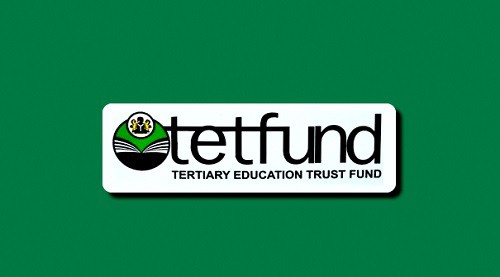TETFund boss laments tertiary institutions’ reluctance to adopt technology


The Executive Secretary of the Tertiary Education Trust Fund (TETFund), Sonny Echono, has expressed concern over the reluctance of certain tertiary institutions to adopt technology to enhance teaching, research, and administration in the country.
Echono, while urging Nigerian tertiary institutions to embrace technology promptly, warned that the billions of naira already invested in Information and Communication Technology (ICT) infrastructure by the government would be wasted if not properly utilised.
Echono made this statement on Monday in Abuja while giving remarks at a two-day workshop on Blackboard/TERAS (Tertiary Education, Research, Applications and Services) Adoption and Usage in Beneficiary Institutions.
The workshop was organised by TETFund for Registrars, Bursars, Directors of Academic Planning and ICT, and Thesis Project Repository Managers of beneficiary institutions.
He lamented that despite TETFund’s early investment in digital learning platforms such as TERAS, many universities, polytechnics, and colleges of education have refused to participate and continue to fall behind in ICT adoption.
According to him, Nigeria’s rapidly increasing population and the limited number of classrooms make technology the only realistic route to expand access to quality education.
“We are no longer confined to the four walls of classrooms. With just an Android phone or a device, students should be able to access content, participate in learning, and acquire skills. There is no alternative to technology if we must prepare our youths for the opportunities ahead,” Echono said.
He criticised the slow transition to digital platforms in many institutions, some of which still send hardcopy requests to TETFund despite clear instructions for electronic submissions.
The TETFund chief emphasised that having functional and regularly updated institutional websites should be a basic requirement in the digital era, describing the websites of many institutions as “embarrassingly outdated.”
Echono also referenced the success achieved during the COVID-19 lockdown when TETFund partnered with state governments, the Nigeria Television Authority (NTA), and radio stations to broadcast WAEC syllabus-based lessons.
According to him, that year yielded one of Nigeria’s best WAEC results, highlighting the transformative potential of technology in education.
He raised concern that Nigeria is currently ranked 189th globally and 25th in Africa in terms of educational competitiveness, trailing behind smaller countries such as Rwanda and Mauritius, which have used ICT to reform their systems.
“The government has done its part by providing the infrastructure. But when equipment is procured and platforms created and they are not being used, that is the very definition of waste,” he warned.
The TETFund head encouraged institutional leaders to actively promote the use of digital platforms like TERAS among lecturers and students, emphasising that, over time, more than half of TETFund’s educational investment would need to focus on ICT rather than physical infrastructure.
Echono also attributed Nigeria’s underdevelopment to its failure to adopt technology in sectors such as oil, agriculture, and manufacturing, drawing a contrast with China’s rapid advancement through intentional investment in knowledge and innovation.
“We can do the same if we decide to do the right thing. The right thing starts with our education system. The building block of every nation is knowledge,” he said.
He appealed to tertiary institutions to take advantage of the opportunity, populate their websites with relevant information, and ensure that students and staff are fully integrated into the TERAS platform.
Earlier, TETFund’s Director of ICT, Mr Joseph Odo, said that the interactive sessions at the workshop were designed to deepen understanding of the Fund’s digital platforms and strengthen cooperation among beneficiary institutions.
“This is part of our engagements with key stakeholders, registrars, librarians, ICT directors, repository managers, and academic planners, to ensure that everyone understands the interventions we are providing. The world is moving fast technology-wise, and we cannot afford to be left behind,” Odo said.
He explained that the sessions, which will be held across all six geopolitical zones, aim to reinforce the use of TETFund-funded learning platforms, which consolidate data for planning and enhance teaching, research, and learning outcomes.
Odo added that TERAS is evolving into “an educational lifestyle” that supports students, lecturers, administrators, and even government planners.







